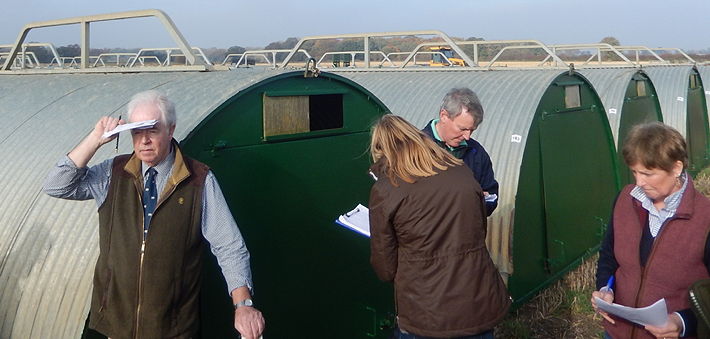Prices continue to tumble with the SPP down by 1.99p to 144.74p and no signs of any recovery yet.
Twelve months ago the SPP stood at 162.5p, compared 144.74p today. Just to add salt to the wound, spot wheat prices a year ago were £148/t compared with £203/t today!
Weekly contribution prices are still coming under pressure and although one of the main players stood on, others could drop by a copper or two with most in the 132 – 135p bracket.
Prices for spot bacon pigs are reported to be dire with very little space available and some deals have been reported at not much more than 110p/kg, but regular sellers might be able to coax 125p/kg where space permits.
The outlook for UK pig prices remains bleak with large numbers of pigs being rolled, some due to ongoing Covid related staffing problems as well as several plant breakdowns, not helped by the extremely high average weights of pigs passing through the killing lines with the latest UK deadweight average at 90.42kg.
Saturday slaughtering may be on the cards to try and get on top of the problem, but pig prices are continuing to slide, mainly due to much cheaper foreign imports, with many producers finding themselves between a rock and a hard place.
The cull sow market is still operating at a trickle rather than a flood with a limited number of export consignments heading for Europe, but in many cases encountering long delays at custom ports in France and Germany which, in some cases, has led to cull sow meat being “out of date” and destined for the skip rather than human consumptions.
Recent falls in the value of the Euro which traded on Friday worth 88.8p compared with 89.9p a week ago, is doing nothing to help on the import / export front.
The weaner market continues to reflect the falling SPP although, once again, the AHDB have not published any average prices, but some RSPCA Assured 7kg piglets are changing hands in the £37 – £40/head range and 30kg weaners are either side of £50/head.
The soaring cost of feed ingredients continues to roll on with futures prices for UK feed wheat quoted at £215/t for February and £171/t for September.
Feed barley remains at something of a discount but is still expensive at £168/t for February delivery.
Protein values are skyrocketing with February Hipro soya meal quoted at £457/t and June – October at £414/t.
And finally, UK exporters are being challenged by Brexit checks hitting pork exports which have brought UK pork exports to an almost complete standstill.
The irony is that with the UK only 55% self sufficient in pig meat, large volumes of cheaper EU pig meat are hitting our industry with no reports of any significant hold ups at the docks on the way here and this contrasts with the slow bureaucratic process involved for exporters.
UK exports to France and adjoining countries are subject to far more stringent checks and according to the NPA at excessive levels.
Veterinary checks at Calais can take almost 24 hours and in some cases pig meat has to be dumped because it is out of date.
As a result a bottleneck of cull sows is building up in the UK, all of which have to be fed on eye wateringly expensive food.
Unless this bureaucracy overload can be limited, the outlook for cull sow exports remains uncertain and no doubt some welfare issues will soon surface.
With the UK pig industry proud of its welfare records, it is a sin that the pig industry could be brought to its knees by these regulations and are a baptism of fire to the post-Brexit era, with the fishing industry experiencing similar problems.




